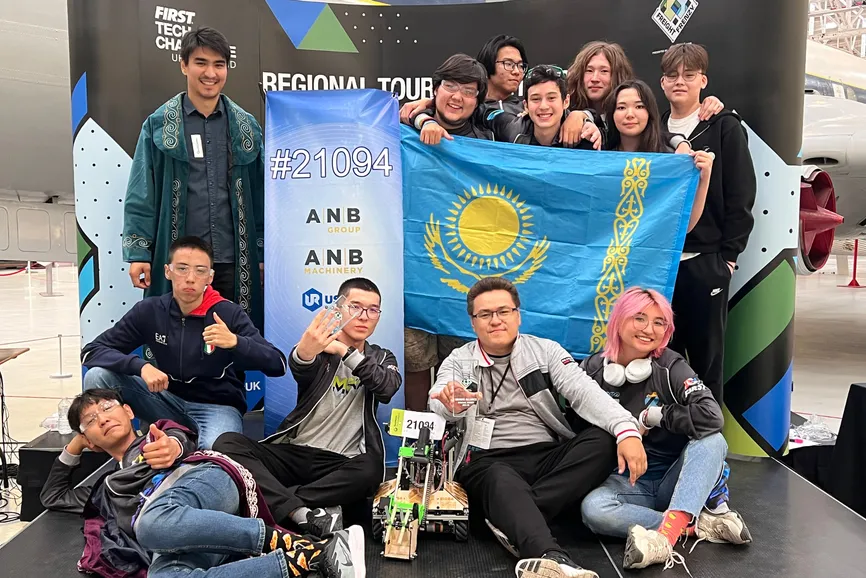Kazakhstan's robotics team triumphed without a single defeat at the British out-of-season FIRST Tech Challenge West Midlands Regional Event, QazMonitor reports. The Kazakh teams won the awards in the categories of Winning Alliance and Judges Award.
Winning the championship gives students a chance to enter the world's leading universities. The press service of USTEM Robotics Foundation gave comments on the event.
Setting an absolute record
The Kazakhstan team includes 12 students aged 15-17 from leading Almaty schools - NIS (PhM), BIL and Haileybury. All of them happen to be winners and prize-winners of Kazakhstani competitions in robotics. The young engineers and programmers won all 10 of the games, setting an absolute record for the competition.
"Our teams won first place at the robot game against the strongest in Great Britain and received the Judges Award, which is given to the team that showed the best sportsmanship. We should mention that FIRST has its own fund with an $80 million scholarship, and the winners of the robotics championships can apply to study for free at the world's leading universities, including MIT, Yale, and other top universities," said USTEM Robotics Foundation manager Asylbek Murzakhmetov.
Crafting the winning machine
The Kazakh students spent a whole month assembling their robots, sometimes staying overnight in the school labs. The young inventors modeled the robot parts themselves, then built their projects on a 3D printer and laser machines.
"Staying up at night on holidays to work is easy when you understand what you're working for. Today's victory is the result of years of work. Thanks to robotics, we are constantly improving ourselves, and not just in terms of technical skills - we learn how to interact and collaborate with other teams, help weaker opponents, and build strategies and tactics for our game."
Kazakhstan vs the UK: the battle of the two alliances
The journey to the final game required the team to carefully navigate around social road bumps. At the beginning of the competition, all teams were randomly grouped into alliances, where they had to work together.
There is no place for cheating, or setting up 'an accident' for the rivals' robot. Opponents in the first round can later end up very much in the same group. This is why teams have to cooperate even if they are in opposite camps. Need to fix an engine or change batteries? Everyone is ready to help.
In the last round, the strongest teams can choose who they want to be in the same team with. The young Kazakh engineers who came out on top of the list decided to pair up with another Kazakh team and compete against the UK alliance.
The game itself involved the transportation of cargo (that looked like ducks) to multistory warehouses located on a special game field. The higher the floor and the more accurate your robot is, the more points your team gets. The rule requires the game to end with the robot parking at a certain point. Despite the difficulties, Kazakh teams performed the timed tasks better than their UK opponents and won the prize.
The trip to Great Britain does not end there for Kazakhstan. Our team is on its way to the second FIRST Tech Challenge South East Regional Event. Judging by the record figures, the Kazakh students are the competition favorites with a high likelihood of continuing their winning streak.
FIRST is included in the list of olympiads recommended to students and teachers by the Ministry of Education and Science of Kazakhstan. Every year FIRST organizes various competitions for children from 6 to 18 years old. Each competition differs in subject matter and complexity of tasks. The tasks are tied to real-world challenges, such as industrial automation, mining, waste recycling, space exploration, biomedicine, and other important topics.
